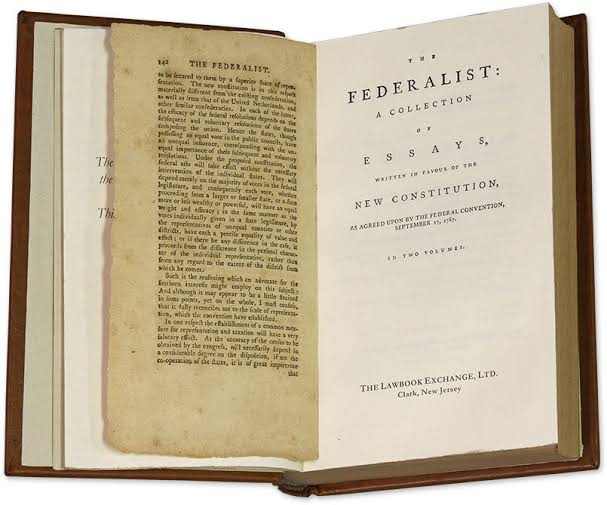The only level of government that was to be directly responsive to the people was the House of Representatives. It was granted the most constitutional power but was to be checked by the executive branch, the upper house of the Senate, and the judicial branch. Madison warned against a “pure democracy” in Federalist Essay No. 10. Pure democracies, he surmised, could not protect the people from the evils of faction, which he defined as a group whose interests were alien and counteractive to the good of society. Madison believed that in a pure democracy, factions could easily take control of the government through alliances (or dishonesty) and subject the minority to perpetual legislative abuse. A representative or federal republic, such as the United States, offered as a check against destructive factionalism. Madison thought the states would help control factionalism by rendering a small group from one geographic or political region ineffective against the aggregate remaining states.
Federalist Essay No. 10
During the New York ratification debates, Alexander Hamilton also disputed the observation that “pure Democracy would be the most perfect government.” He said, “Experience has proved that no position in politics is more false than this. The ancient democracies . . . never possessed one feature of good government. Their very character was tyranny; their figure, deformity.” The Constitution created a system far superior, in his estimation, to a pure democracy. John Adams echoed this sentiment and once wrote that “there was never a Democracy yet that did not commit suicide.”
Cite This Article
"Federalist Essay No. 10" History on the Net© 2000-2024, Salem Media.
April 24, 2024 <https://www.historyonthenet.com/federalist-essay-no-10>
More Citation Information.






